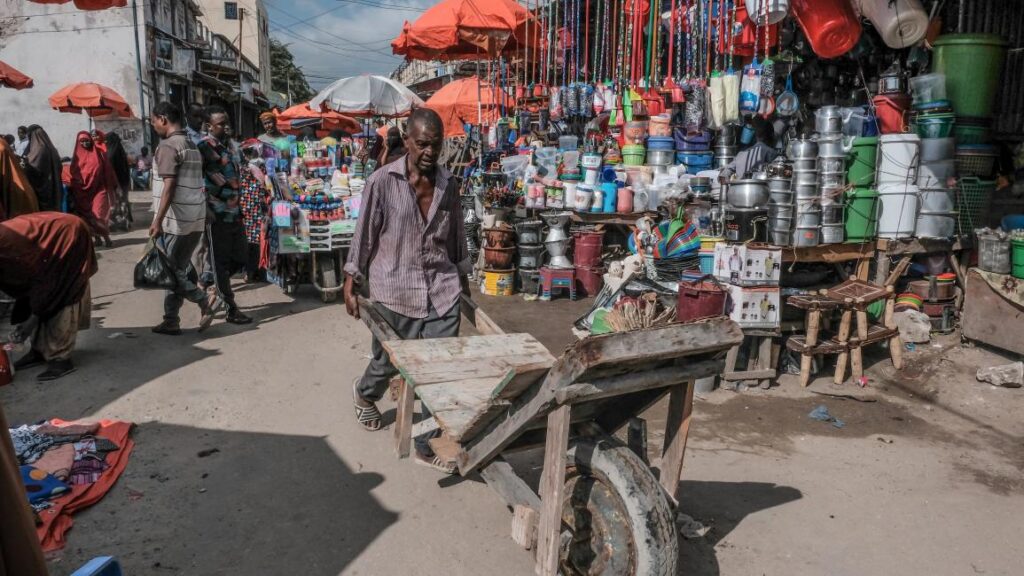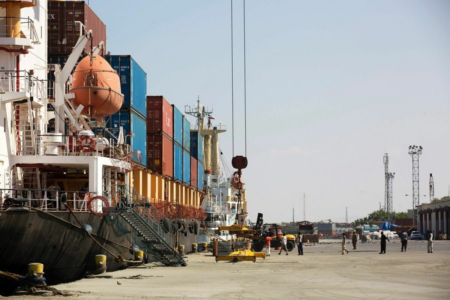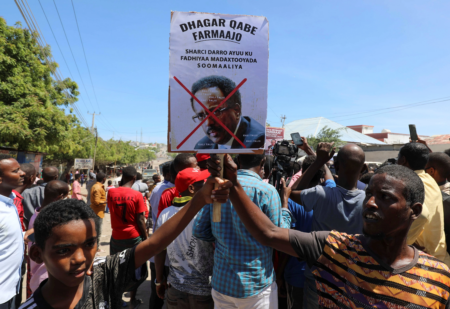The Somali Council of Ministers, chaired by Deputy Prime Minister and Acting Prime Minister Salah Ahmed Jama, held its weekly meeting on Thursday and approved key legislation aimed at driving economic growth and reducing youth unemployment.
Joblessness Pushes 58% of Youth into Armed Groups
Youth unemployment remains one of Somalia’s most pressing challenges, with World Bank estimates showing a rate of 33.9% among those who are 15–24 in 2024—a slight improvement from 37.4% in 2019.
However, independent research from the Hiraal Institute suggests the reality may be higher, with up to 70% of Somali youth unemployed, and 58% citing joblessness as a main factor pushing some into armed groups or violence.
The Newly Approved Youth Unemployment Legalizations Include:
- Private Employment Agencies Regulation Law – establishing a legal framework for private recruitment firms to ensure fair hiring practices, reduce reliance on informal job markets, and protect job seekers.
- Mining Sector Law – designed to attract both local and foreign investment into Somalia’s mining industry, creating specialized job opportunities and diversifying national income sources.
What is Somalia’s Broader Strategy?
Government officials stressed that a more secure environment—bolstered by ongoing successful military operations—will provide the foundation for implementing these laws effectively, while also encouraging investor confidence.
According to the Cabinet, these reforms form part of Somalia’s broader strategy to reduce dependence on foreign aid, expand formal employment opportunities, and channel economic growth toward long-term stability.
Solutions for Youth Unemployment
If Somalia wants to end youth unemployment problem, it needs a mix of short-term employment boosts and long-term economic reforms that match the country’s unique strengths and realities.
Suggested solutions include the following:
1. Support Small & Micro Enterprises (SMEs)
Access to microfinance & grants:
Many Somali youth have entrepreneurial skills but lack startup capital. Small business grants or low-interest loans can help them launch ventures in retail, agriculture, and services.
Business training hubs:
Combine financial support with business management and digital skills training.
2. Develop Agriculture & Fisheries Value Chains
- Somalia has rich farmland and one of the longest coastlines in Africa.
- Youth-led cooperatives for farming, fishing, and livestock can add value by producing packaged goods (e.g., processed fish, dairy products) instead of selling raw materials.
- Introduce cold storage & transport infrastructure to reduce spoilage and create jobs in logistics.
3. Expand Vocational & Technical Training
- Focus on construction, carpentry, welding, plumbing, renewable energy, and IT skills—fields that can absorb many young workers.
- Partner with the private sector so training programs are linked directly to job opportunities.
4. Invest in Renewable Energy Projects
- Solar and wind energy projects can create installation, maintenance, and engineering jobs while powering businesses in rural areas.
- Encourage youth-owned energy startups to bring affordable electricity to underserved communities.
5. Boost the Digital & Remote Work Economy
- Somalia’s young population is highly mobile and tech-savvy.
- Provide high-speed internet hubs and online work platforms so youth can access global freelancing, translation, programming, and virtual assistant jobs.
- Offer digital literacy programs targeting rural youth.
6. Modernize the Mining & Natural Resource Sector
- With proper regulation (like the new Mining Law), youth can be trained for safe, skilled jobs in exploration, mineral processing, and environmental management.
- Ensure local hiring quotas in mining contracts to benefit Somali workers.
7. Public Works & Infrastructure Projects
Government-led road building, irrigation systems, and housing projects can absorb a large number of unskilled youth quickly while building long-term national assets.
All these solutions will have a great impact on Somali youth unemployment, creating a prosperous future for Somalia.








